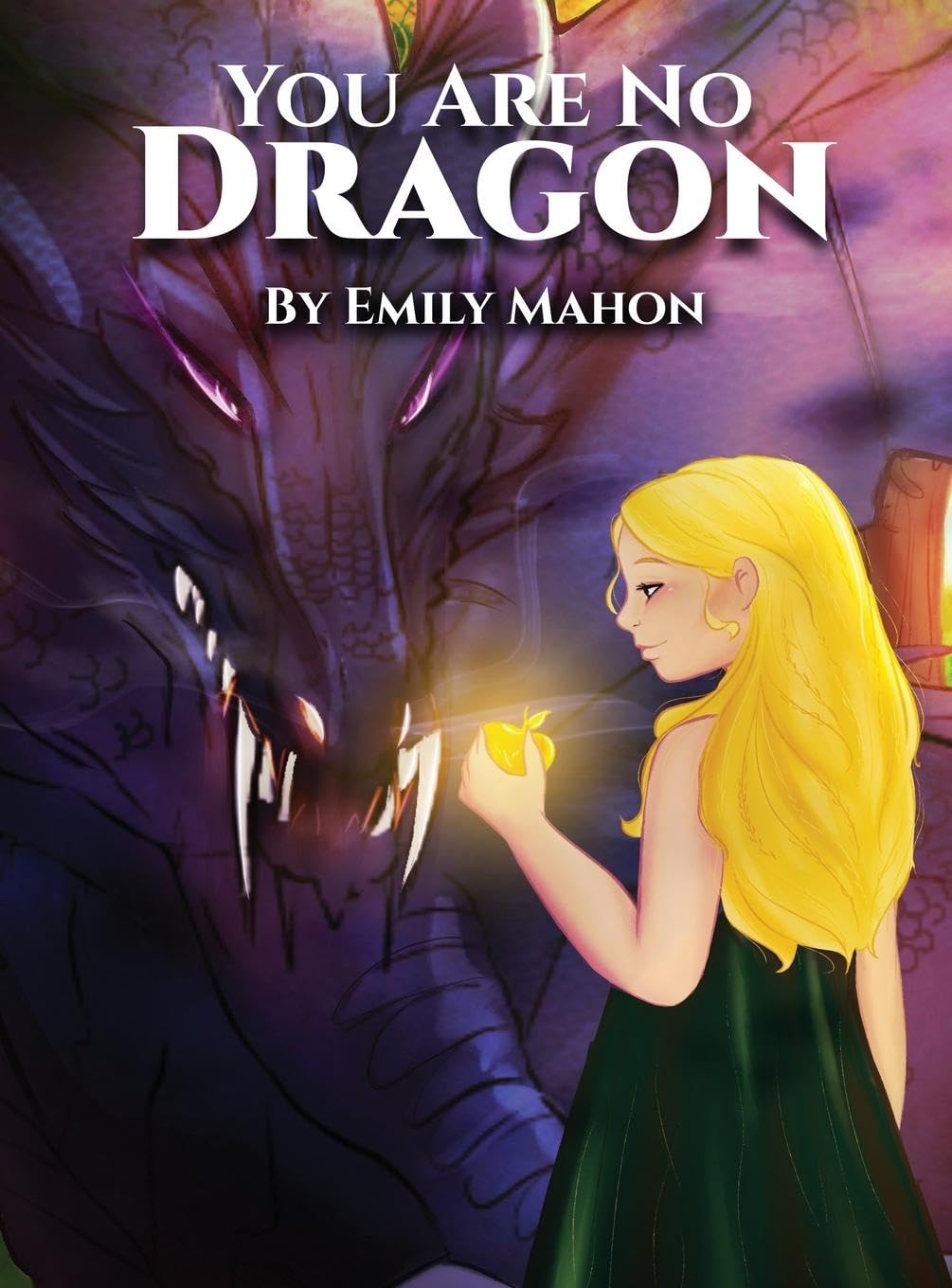Children’s literature has the remarkable power to inspire, educate, and shape young minds. It’s a world where imagination knows no bounds, and the stories we encounter play a pivotal role in our development. In Emily Mahon’s enchanting book, “You Are No Dragon,” we find a narrative that not only captivates young readers but also challenges stereotypes and empowers through its strong female protagonists.

The Power of Female Protagonists:
Throughout the history of literature, we’ve seen countless male heroes embarking on epic adventures, overcoming obstacles, and saving the day. However, in recent years, there has been a significant shift toward the inclusion of strong female protagonists. “You Are No Dragon” is a shining example of this positive change, featuring two remarkable female characters at the heart of the story.
Freya: The Complex Heroine:
Freya, a central character in the book, is a goddess who initially conceals her true identity behind the fearsome exterior of a dragon. This decision to portray Freya in such a powerful, mythical role challenges traditional stereotypes. It disrupts the notion that female characters are primarily relegated to the role of a princess in need of rescue. Instead, it portrays Freya as a powerful deity with her own agency and the capacity for transformation.
As young readers embark on Freya’s journey, they witness a character who defies expectations and breaks free from her own limitations. She is not defined by her appearance but by her strength, courage, and resilience. Freya’s portrayal encourages young girls to question stereotypes and embrace their own strength, complexity, and potential.
Iduna: The Voice of Unconditional Love:
Iduna, another key character in “You Are No Dragon,” is a goddess of eternal youthfulness who radiates innocence and unconditional love. Her character challenges stereotypes by highlighting the importance of love and compassion. Iduna’s character showcases that strength is not just about physical power; it’s also about emotional and spiritual strength.
Iduna’s character teaches young readers about the power of love and acceptance. Her ability to see beyond the fearsome exterior of the dragon and recognize the goddess within Freya emphasizes the transformative influence of love. It encourages young girls to understand that true strength is found in embracing love, compassion, and empathy.
Lessons Beyond Stereotypes:
“You Are No Dragon” extends beyond the portrayal of female characters who defy stereotypes. It delves into valuable life lessons, such as self-discovery, the transformative power of love, and the importance of embracing one’s true self. These themes not only empower young female readers but also encourage them to question societal expectations and recognize their own potential.
Empowering Young Girls:
As we explore the theme of empowering female protagonists, it’s important to recognize the impact these characters have on young girls. When children encounter strong female leads in literature, it provides them with role models who break free from stereotypes and inspire them to embrace their unique qualities.
Through Freya and Iduna, “You Are No Dragon” encourages young girls to believe in themselves, to question traditional gender roles, and to understand that they can be the heroes of their own stories. It fosters a sense of empowerment and self-confidence that goes beyond the pages of the book.
Fostering Empathy and Acceptance:
In addition to empowering young girls, “You Are No Dragon” fosters empathy and acceptance. It emphasizes the importance of looking beyond appearances and understanding the emotions and motivations of others. Through Freya and Iduna’s relationship, the book teaches young readers to embrace love, compassion, and empathy as tools for personal growth and positive change.
In Conclusion:
“You Are No Dragon” is a literary gem that not only enchants young readers but also challenges stereotypes and empowers through its strong female protagonists. By showcasing characters like Freya and Iduna, the book encourages young girls to embrace their own strength, defy societal expectations, and understand the transformative power of love and empathy.
As we celebrate the rise of empowering female protagonists in children’s literature, it’s important to remember that stories like “You Are No Dragon” have the potential to influence and shape the next generation. They inspire young girls to question stereotypes, embrace their uniqueness, and recognize the power within themselves. In a world where children are constantly exposed to various influences, literature remains a potent tool for teaching important life lessons and encouraging girls to become the heroes of their own stories.
